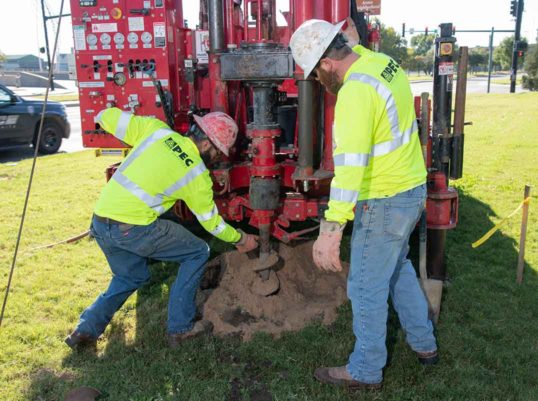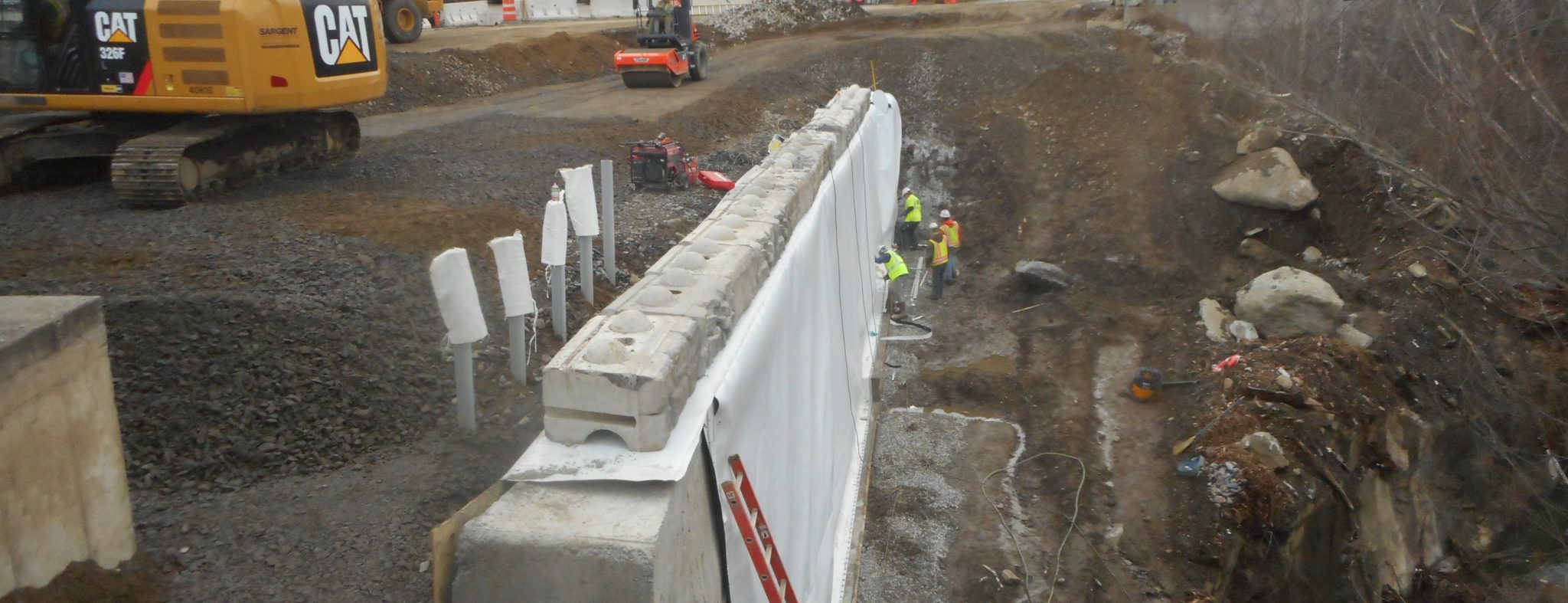Why Working With a Geo Tech Engineer is Essential for Complicated Building And Construction Projects
Why Working With a Geo Tech Engineer is Essential for Complicated Building And Construction Projects
Blog Article
Understanding the Essential Role of the Geotechnical Market in Modern Building Projects and Infrastructure Advancement
The geotechnical industry is a foundation of modern building and infrastructure advancement, offering crucial insights into dirt habits that directly affect task results. Through advanced dirt evaluations and ingenious design remedies, geotechnical experts not only make certain structural integrity however additionally address sustainability concerns amidst progressing environmental criteria. As framework demands expand and brand-new challenges emerge, the value of this area becomes significantly evident. What implications might these developments have for future projects and the overall safety of our developed environment?
Relevance of Soil Evaluation
Soil assessment plays an essential role in the geotechnical market, serving as the foundation for educated decision-making in building projects. Exact dirt evaluation is important for establishing the viability of a website for numerous kinds of frameworks, including property homes, business buildings, and bridges. By assessing dirt make-up, density, toughness, and dampness material, designers can expect prospective challenges and alleviate risks connected with ground instability, erosion, and settlement.
The evaluation procedure normally involves a series of tests and observations that supply important info regarding the subsurface problems. This data educates the layout and construction procedures, making sure that frameworks are constructed on strong ground with ample support. Recognizing the dirt account allows designers to select proper construction approaches and materials, maximizing resource application and lessening costs.
Along with making certain structural integrity, soil assessment contributes to environmental sustainability. By determining prospective contamination or adverse effects on surrounding environments, engineers can implement methods to protect these natural deposits. Generally, extensive soil assessment is crucial in the geotechnical field, underpinning the safety and security, effectiveness, and ecological obligation of construction tasks.
Key Geotechnical Strategies
A variety of crucial geotechnical techniques are utilized to evaluate and boost the stability and performance of construction websites. One fundamental technique is dirt sampling and screening, which permits designers to determine the chemical and physical homes of the ground. This info is vital for making notified choices pertaining to foundation design and building and construction methods.
An additional vital strategy is site characterization, which includes the detailed evaluation of soil and rock problems through methods such as borehole drilling and in-situ screening. Methods like Standard Infiltration Examinations (SPT) and Cone Penetration Tests (CPT) offer beneficial data on dirt strength and stratigraphy.
Ground improvement methods, such as soil stablizing and grouting, are likewise vital in enhancing the load-bearing capacity of weak soils. These methods can alleviate settlement and enhance overall site problems.
Additionally, slope stability evaluation is crucial for identifying prospective landslide threats and guaranteeing the safety of excavations. This analysis typically uses mathematical modeling and limitation equilibrium techniques to anticipate soil actions under different problems.
Integrating these geotechnical methods into building and construction planning not just optimizes task outcomes however additionally makes sure the long-term sustainability of framework advancement.
Effect on Building And Construction Safety

Furthermore, efficient geotechnical design entails carrying out mitigation techniques for recognized risks. This might consist of dirt stablizing strategies, preserving frameworks, or water drainage systems to relieve hydrostatic pressure. By dealing with these elements, building and construction groups can decrease the chance of mishaps and improve employee safety Web Site and security.
In addition, continual monitoring of site problems is vital throughout building. Geotechnical tools can give real-time information relating to ground activity and security, enabling timely treatments when essential.
Essentially, the geotechnical sector plays a critical function in protecting building and construction jobs. By focusing on ground honesty and employing strenuous analysis methods, the geotechnical field not only secures the labor force however additionally contributes to the durability and dependability of built framework.
Sustainability in Geotechnical Practices

In addition, geotechnical engineers are currently employing innovative modern technologies, such as geosynthetics, which enhance dirt security while lowering the quantity of product needed. This not just saves sources but also leads to much less waste generation (consulting engineer). The assimilation of lasting design principles into geotechnical design urges the usage of sustainable power resources in building and construction processes, further lowering carbon emissions
By carrying out these analyses, geotechnical professionals can create methods that alleviate adverse impacts, ensuring compliance with environmental laws. Overall, the focus on sustainability within geotechnical practices not only adds to the long life and strength of framework yet additionally advertises an accountable strategy to land and resource management.
Future Trends in Geotechnical Design
Development is driving the future of geotechnical design, as arising techniques Extra resources and innovations improve the market. The assimilation of innovative data analytics and artificial intelligence is readied to change website examination and threat analysis, making it possible for designers to make even more educated decisions based upon real-time data. The usage of geosynthetic products is obtaining traction, supplying sustainable solutions that improve soil security and lower ecological effect - geo tech engineer.
An additional significant fad is the fostering of automated and robot systems for tracking and building and construction procedures. These technologies not just enhance precision but additionally improve safety by decreasing human involvement in harmful settings. In addition, the execution of Building Info Modeling (BIM) in geotechnical design helps with improved collaboration amongst stakeholders, enhancing job distribution and decreasing costs.
As environment change postures new challenges, the sector is significantly concentrating on strength and versatility in design techniques, guaranteeing framework can stand up to extreme weather events. The ongoing fad towards sustainability will drive development in environment-friendly materials and methods, lining up geotechnical design with wider ecological goals. Jointly, these fads will shape a more reliable, lasting, and resistant geotechnical landscape for future tasks.
Final Thought

The geotechnical industry is a keystone of modern-day building and construction and framework advancement, supplying essential understandings into dirt behavior that straight affect job results. consulting engineer.Soil evaluation plays an essential duty in the geotechnical market, serving as the foundation for notified decision-making in construction projects. Generally, detailed dirt analysis is essential in the geotechnical field, underpinning the safety and security, efficiency, and ecological duty of building jobs
Building safety is considerably affected by geotechnical methods, as the security and integrity of the ground directly impact the overall safety and security of a construction website.In final thought, the geotechnical sector is essential in modern-day construction and infrastructure growth, offering essential analyses that ensure structural integrity and safety and security.
Report this page